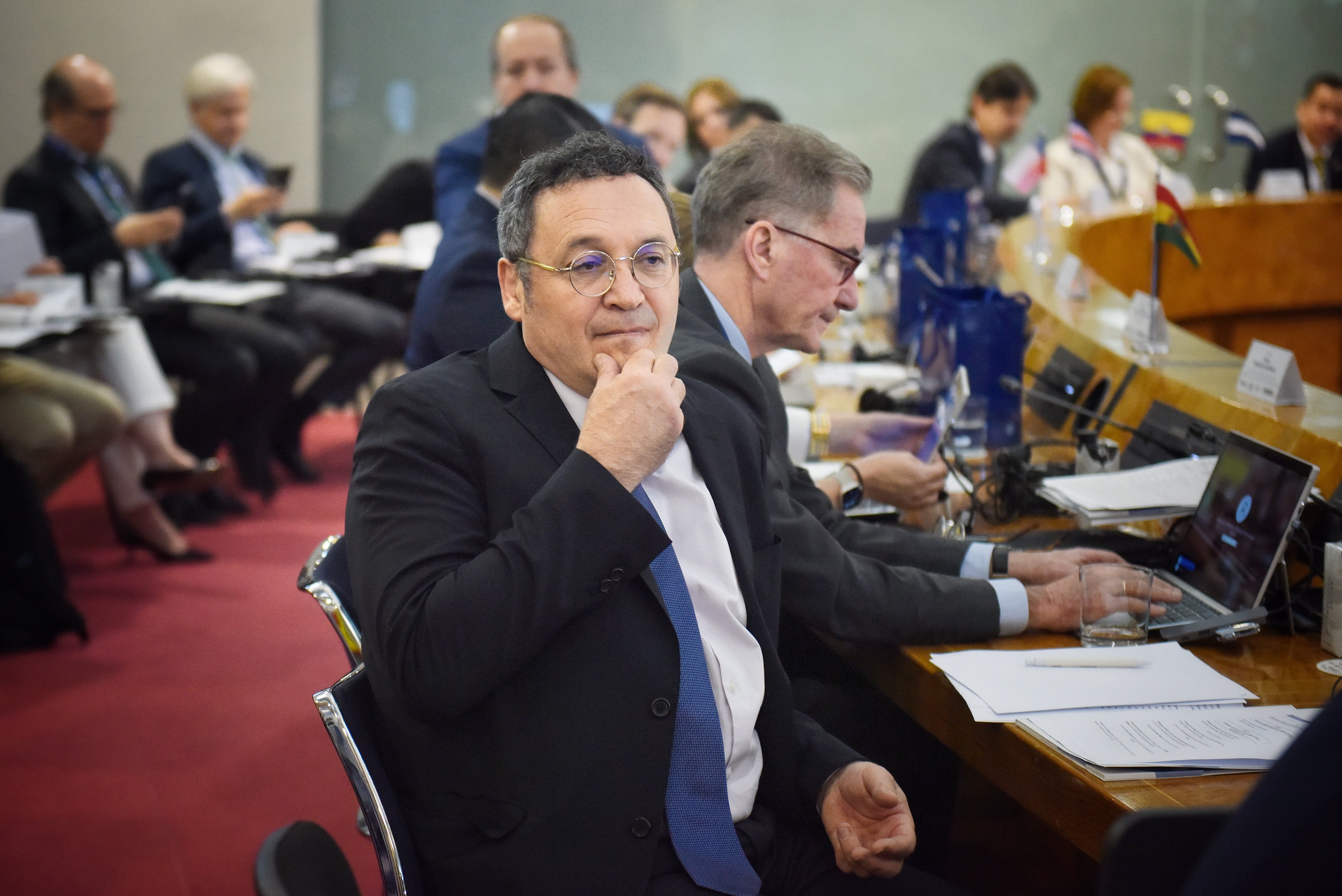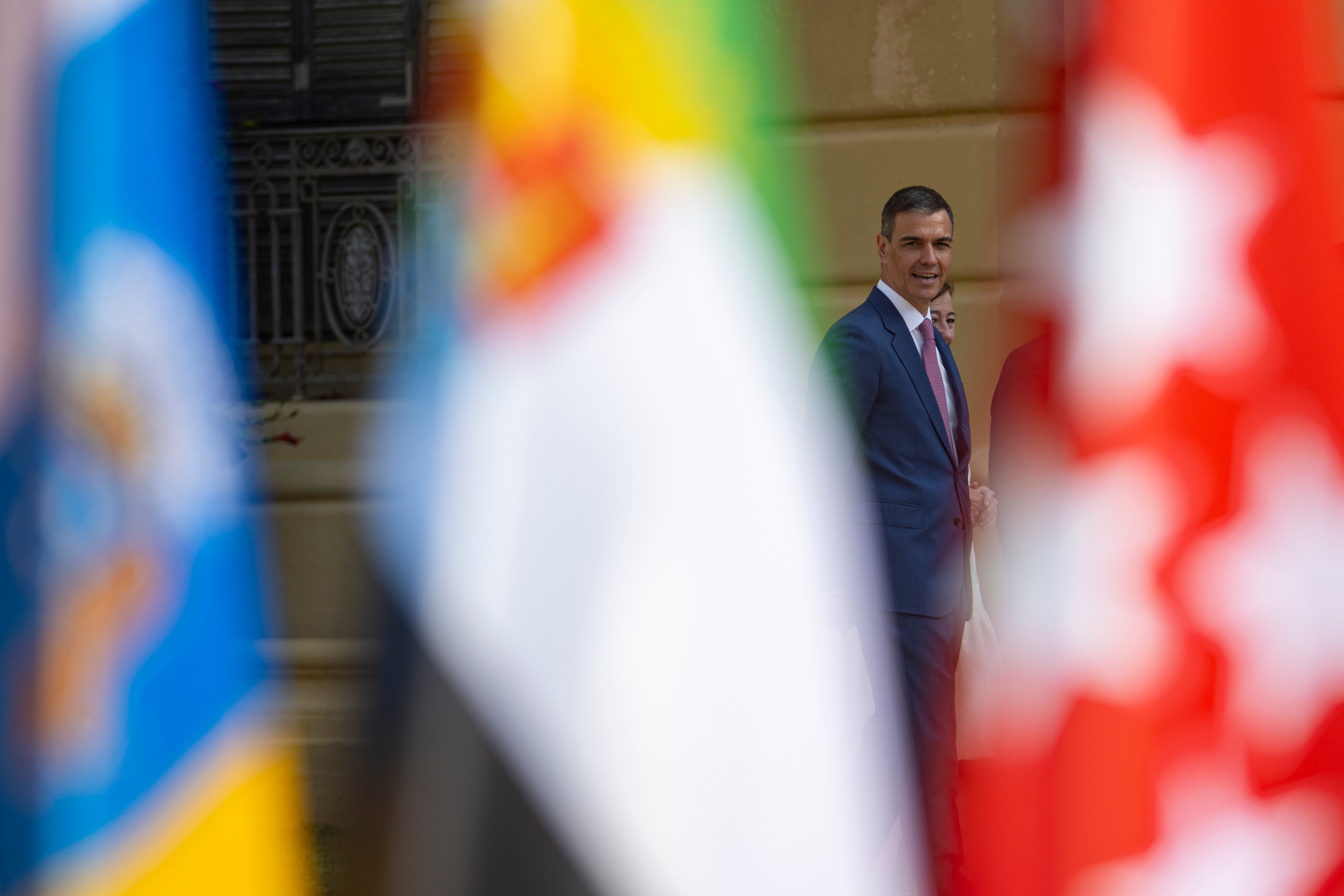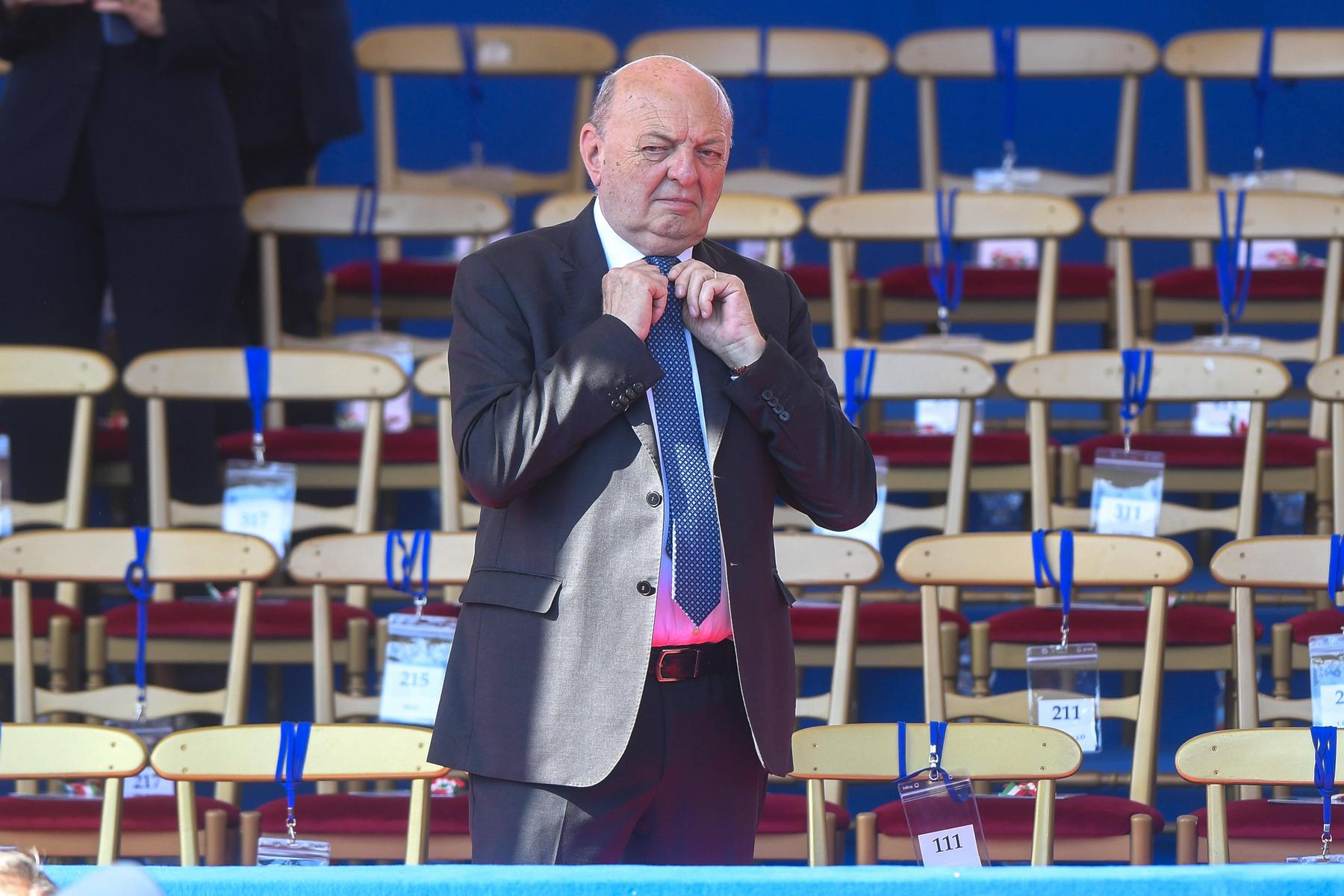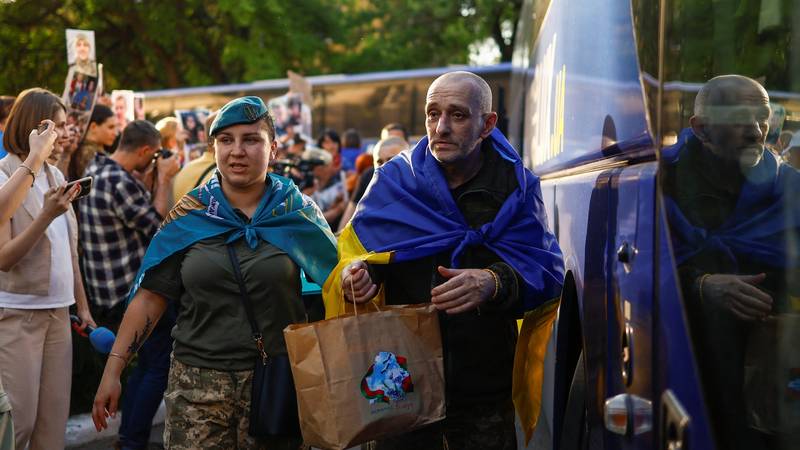The government finalizes a game of 2000 million euros for defense in full pressure of NATO | Spain
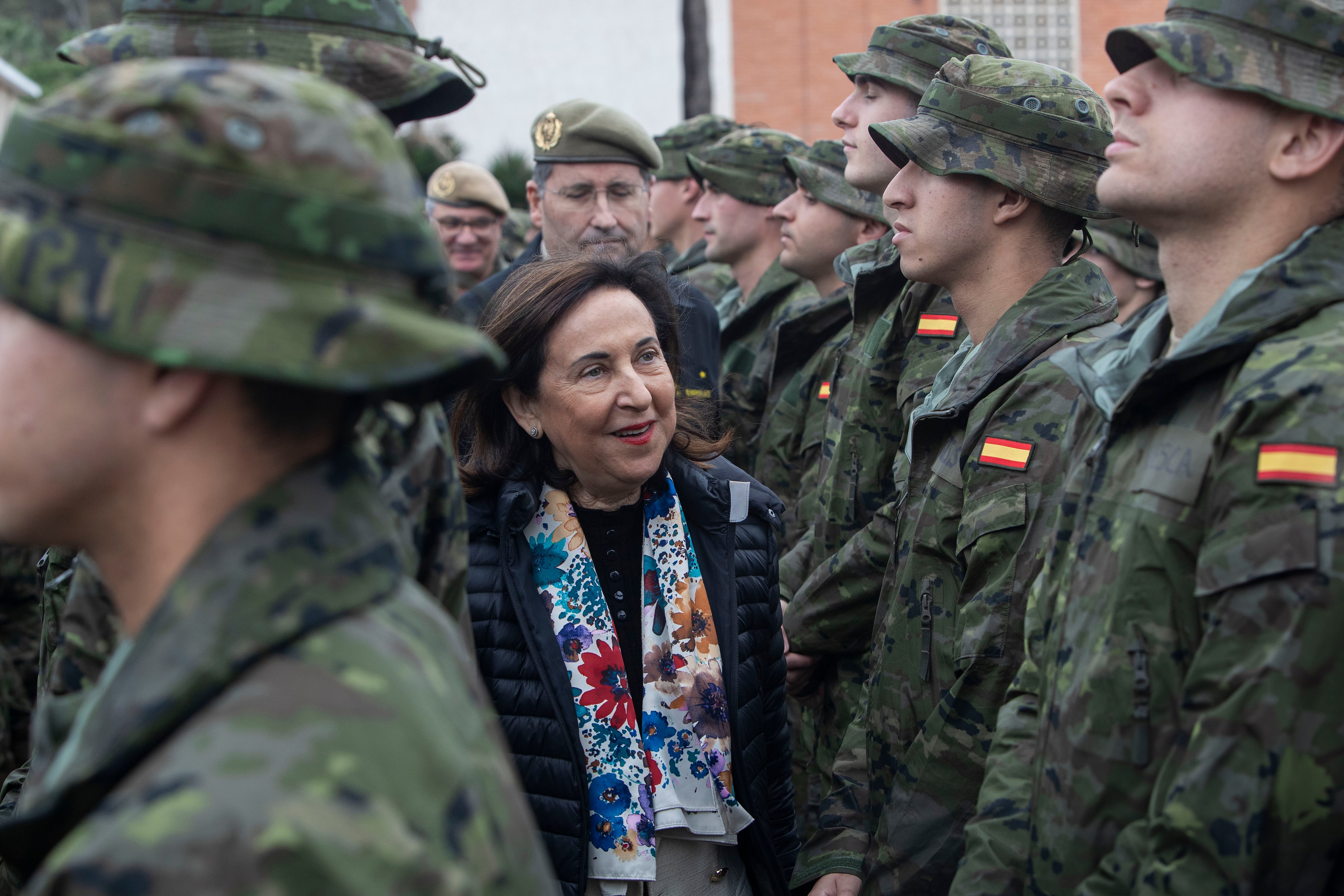
Pedro Sánchez It presumes to have increased by 10,000 million euros the expense in defense since it reached the Moncloa, at a rate of 10% per year, without having to have the support of the PP, because everything has been done within the Council of Ministers discreetly. From time to time, without the Minister of Defense, Margarita Robles, that is having a very low political profile at this time, the government approves large packages of defense expense that involve an increase in the budget through various roads, with credit transfers or pulling the contingency fund. This Tuesday, in full debate in Spain on the increase in defense spending and at a time of maximum pressure in the NATOwhich claims Madrid and other European countries, especially Italya superior effort, the Council of Ministers plans to approve on Tuesday an expense of more than 2,000 million euros of a cup that will be allocated above all to armament, according to government sources.
Given the international commitments of Spain, which has to reach 2% of GDP in defense spending before 2029 and as Sánchez has announced much earlier, it is likely that there are more games such as this in the future, although the Executive insists that there is still a lot of negotiation to be done and many data to know. Among them, the most important is how much Spain spent in 2024 according to NATO’s criteria.
The Finance Agreement, which will be made through a defense credit transfer of 2,084 million to meet “unavoidable needs”, was already studied in the State Secretaries Commission on Wednesday, and therefore everything is ready for the Council of Ministers to approve this Tuesday, although that can always be modified at the last minute.
Add, which rejects the increase in defense spending, As he said several times publicly, he will resolve the situation in the usual way: the second vice presidency, directed by Yolanda Díaz, presents observations in the process to show his rejection of this departure, and keeps them alive for the Council of Ministers, but the initiative goes ahead anyway. The ministers of adding this political solution to show their discrepancy while allowing spending to continue several times in recent months, every time there was an increase in defense expenditure. This is the formula that the coalition has found to agree on this background discrepancy, which generates media tension but does not put government stability at risk.
The technical argument to use this credit transfer route, which avoids having to vote this issue in Congress, something that always generates problems because several groups of the majority reject any increase in defense spending and it would be necessary to resort to the votes of the PP, always an unknown, is the fact that the budgets are extended, and therefore cannot be directly moved by this item. Defense argues that this budget extension causes some programs, especially of state -of -the -art armament, to stay without financing, and that is why he asks for this credit transfer. Defense argues that you need this money to comply with even the contracts achieved with the military industry and to respond to international commitments.
The most important investment package, 870 million euros, will be allocated according to the Defense Plan to the Special Modernization Program 122B, which implies the “development, manufacture and acquisition of defense systems and equipment, which have a high complexity and long duration, whose objective is to achieve the modernization of the armed forces, providing them with the best weapons systems”. That is, the latest technology armament. Another 803 million will go to the 122A program, of modernization of the Armed Forces, which include the integrated training system of the Air and Space Army, the antimile point defense system, to protect the ships from the Navy, and also maintenance and replacement of equipment and systems for the three army. The rest of the logistical support programs and management issues of the Ministry, Research or Hospital Assistance.
The Government has been releasing a drip of increases in defense expenses in a discreet manner, with more than 15 agreements in Councils of Ministers since November 2023, when the new Executive took possession. Before, when I was not adding but united we can in the government, it was also done in a very similar way. In fact last week, when Ione Belarra, leader of Podemos, called her « Lord of War, » Sanchez reminded her that when she was a minister – from 2020 to 2023 – there were also the same increases as defense spending and she did not disqualify her. The Executive takes them forward with a great discretion, and it is usual that it is not even reported at the press conference after the Council of Ministers between the relevant issues addressed in the meeting, and only records through the reference that is published hours later.
Sánchez has a lot of pressure to increase the defense spending very importantly. This week, at the NATO meeting, it has been very clear that the new administration of Donald Trump is committed to demanding 5% to all allies, something that the Spanish executive sees as completely unfeasible. It is not the only one. Others of different political sign, such as Italian, also flat that idea of 5% and also discuss the 3% that other allies raise. Spain and Italy, like everyone else, committed in 2014 to reach 2% and that is the only objective they recognize at the moment, although it is foreseeable that in the decisive NATO summit in June in the Hague a higher agreement is reached.
Spain and Italy have a similar situation, despite their political differences, because they have high debts – more than Italian – and a limited margin to greatly increase the expense in defense without touching social spending, as Sánchez has guaranteed. Both Spanish and Italian public opinions, but also from other southern countries that do not feel so close the Russian threat, are clearly contrary to increasing defense expenditure if that involves social cuts. Sanchez moves like this in the balance between the international commitments that he intends to fulfill, and his interest in keeping Spain in the heart of decisions, and the need to put limits to the militaristic escalation that is lived in other countries of the north and the east and above all of not compromising in any case social spending. In the Moncloa they insist that it is perfectly compatible and everything will be seen in the coming months, when figures and deadlines are put to the commitments. At the moment, this Tuesday, if there are no last minute changes, there will be a first blow of more than 2,000 million euros.


